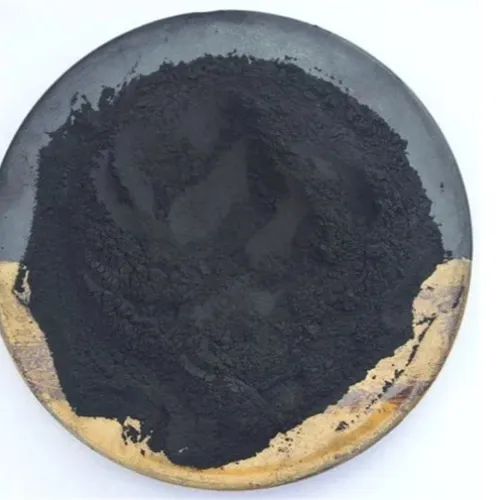Warning: Undefined array key "file" in /home/www/wwwroot/HTML/www.exportstart.com/wp-content/themes/1198/header.php on line 7
Warning: Undefined array key "title" in /home/www/wwwroot/HTML/www.exportstart.com/wp-content/themes/1198/header.php on line 7
Warning: Undefined array key "title" in /home/www/wwwroot/HTML/www.exportstart.com/wp-content/themes/1198/header.php on line 7
- Afrikaans
- Albanian
- Amharic
- Arabic
- Armenian
- Azerbaijani
- Basque
- Belarusian
- Bengali
- Bosnian
- Bulgarian
- Catalan
- Cebuano
- China
- China (Taiwan)
- Corsican
- Croatian
- Czech
- Danish
- Dutch
- English
- Esperanto
- Estonian
- Finnish
- French
- Frisian
- Galician
- Georgian
- German
- Greek
- Gujarati
- Haitian Creole
- hausa
- hawaiian
- Hebrew
- Hindi
- Miao
- Hungarian
- Icelandic
- igbo
- Indonesian
- irish
- Italian
- Japanese
- Javanese
- Kannada
- kazakh
- Khmer
- Rwandese
- Korean
- Kurdish
- Kyrgyz
- Lao
- Latin
- Latvian
- Lithuanian
- Luxembourgish
- Macedonian
- Malgashi
- Malay
- Malayalam
- Maltese
- Maori
- Marathi
- Mongolian
- Myanmar
- Nepali
- Norwegian
- Norwegian
- Occitan
- Pashto
- Persian
- Polish
- Portuguese
- Punjabi
- Romanian
- Russian
- Samoan
- Scottish Gaelic
- Serbian
- Sesotho
- Shona
- Sindhi
- Sinhala
- Slovak
- Slovenian
- Somali
- Spanish
- Sundanese
- Swahili
- Swedish
- Tagalog
- Tajik
- Tamil
- Tatar
- Telugu
- Thai
- Turkish
- Turkmen
- Ukrainian
- Urdu
- Uighur
- Uzbek
- Vietnamese
- Welsh
- Bantu
- Yiddish
- Yoruba
- Zulu
أغسطس . 06, 2024 01:15 Back to list
Exploring the Benefits and Uses of Acesulfame and Aspartame in Food and Beverages
Understanding Acesulfame K and Aspartame Sweeteners in the Spotlight
In recent years, artificial sweeteners have gained significant attention due to the rising prevalence of obesity and diabetes. Among the most widely used sweeteners are acesulfame potassium (often abbreviated as Ace-K or ACES) and aspartame. Both are commonly added to a variety of food and beverage products as low-calorie alternatives to sugar, but they have distinct properties and potential effects on health that spark ongoing debate.
Acesulfame Potassium The Sweet Companion
Acesulfame potassium was discovered in 1967 and has been an approved sweetener in many countries since the 1980s. It is known for its intense sweetness, being roughly 200 times sweeter than sugar, which allows manufacturers to use it in very small quantities. This feature makes Ace-K an appealing additive in low-calorie and sugar-free products, including soft drinks, baked goods, and even chewing gum.
One of the notable characteristics of Acesulfame K is its stability at high temperatures, making it suitable for cooking and baking without losing its sweetness. Additionally, it is often combined with other sweeteners to provide a more balanced taste profile, enhancing the flavor of the product without the undesirable aftertaste sometimes associated with artificial sweeteners.
Aspartame The Controversial Sweetener
Aspartame, on the other hand, has been a subject of controversy since its approval in the 1980s. It is approximately 200 times sweeter than sugar and is used in a variety of products ranging from soft drinks to yogurt. Although it has been deemed safe by numerous health authorities worldwide, including the FDA and the European Food Safety Authority (EFSA), concerns regarding its safety have persisted. Some consumers have reported adverse reactions, such as headaches and allergic responses, prompting calls for further research.
acesulfame y aspartame

One of the unique features of aspartame is its caloric content. Unlike Ace-K, aspartame has a tiny number of calories, providing a sweet taste without a significant impact on caloric intake when used in moderation. However, it does break down at high temperatures, which limits its application in cooking compared to Acesulfame K.
Health Implications and Research
The health implications of both sweeteners have been the subject of extensive research. Studies have suggested that when consumed in moderation, both acesulfame potassium and aspartame are safe for the general population. However, there is an ongoing debate regarding their long-term effects, especially concerning weight management and metabolic health.
Some research has indicated that artificial sweeteners may contribute to cravings for sweet foods and beverages, leading to overall increased caloric intake. Moreover, there are discussions about the potential association between the frequent consumption of these sweeteners and an increased risk of metabolic disorders, although the evidence remains inconclusive.
Conclusion
As the search for healthier dietary options continues, acesulfame potassium and aspartame remain prominent figures in the world of artificial sweeteners. While they offer a solution to reduce sugar consumption and caloric intake, consumers must consider their personal health circumstances and preferences when incorporating these sweeteners into their diets. As science progresses, ongoing research will hopefully provide clearer insights into the long-term effects of these popular sugar substitutes, paving the way for informed choices about our food and drink consumption.
Latest news
-
O-Vanillin: A rising star in the flavors and fragrances industry
NewsMay.23,2025
-
2025 Brazil Sao Paulo Cosmetics Exhibition
NewsMay.20,2025
-
2025 European Fine Chemicals Exhibition in Germany
NewsMay.13,2025
-
2025 New York Cosmetics Ingredients Exhibition
NewsMay.07,2025
-
Zibo will host the 2025 International Chemical Expo
NewsApr.27,2025
-
2025 Yokohama Cosmetics Raw Materials and Technology Exhibition
NewsApr.22,2025

